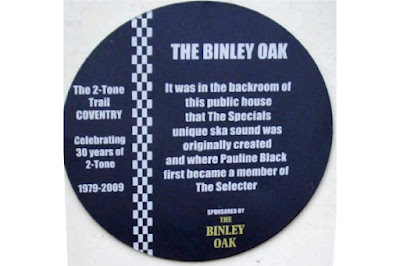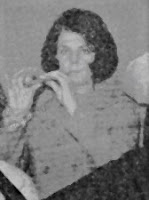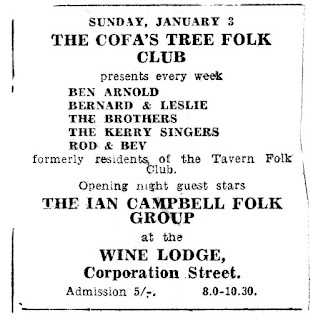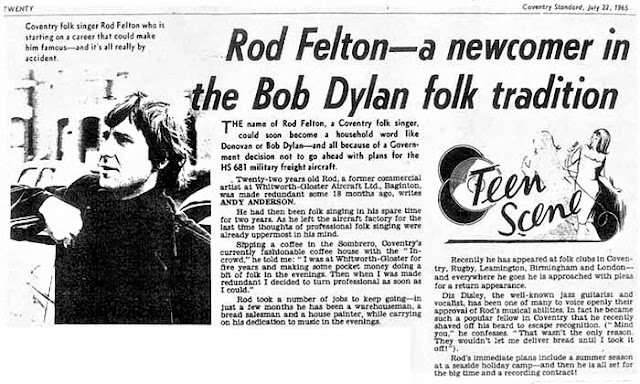The Coventry Folk Scene 1962 to Present
(This is a work in progress – More to do!)
Musically, Coventry is rightly renowned for its dynamic 2 Tone movement which put the city on the international music map and focused the attention, like the best of folk music, on urgent social and political issues. Coventry music might divided by genre on the surface but there is a dynamic interplay between all the genres – eg punk and ska / jazz rock and folk clubs often form a life-line for budding songwriters / performers in need of somewhere to get started, or to try out their material before moving on to join a band. Folk clubs and acoustic venues are often a broad church of styles and approaches, it’s not all about traditional music.
In that context, it’s interesting to note that Selecter vocalist, Pauline Black, who started off in Coventry folk clubs as Pauline Vickers c 1978, is now the Patron of CVfolk, an initiative of Pete Willow, with the City of Culture status in mind and which aims “to establish Coventry as a national and international hub for innovative folk performance in its various traditional and contemporary formats“.
Indeed one of the recent Selecter singles Big in the Body took its inspiration from Woody Guthrie’s Bound to Lose –
Compare The Selecter’s update on the song in Big in the Body
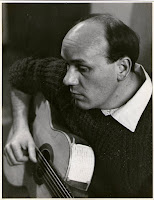 |
| Ben Arnold |
Arnold from Ben’s folk magazine 1967 Folk Crying Out Loud ” The first move towards a folk club began at the Umbrella Club 18, Queen Victoria Road, Coventry’s home grown arts centre. It provided opportunity for the pioneers of Coventry folk like Ron Shuttleworth and Barry Skinner to generate an interest in folk music. A folk club or folk and poetry sessions continued at the Umbrella until 1974. However the Umbrella wasn’t licensed for beer, but it did serve as a starting point.
Lane – where later both the Specials and the Selecter rehearsed. It was called Coventry’s Folk Club. To quote Ben Arnold “Coventry’s first folk club was created out of a common love of what at the time was an esoteric form of expression and desire to bring to the public at large something which had been theirs for hundreds of years.” The Hosts were The Troubadours. a group formed by Barry Skinner and consisting of John Allen, Dee Solomon, Pete and Marlene Roberts, Bryan Sutton, and Bob Bruce. Terry Illingworth. although not all at the same time. Also involved were Brian Curtis, Dick Newton, who later joined the Down Country Boys. Barry Skinner was the main driving force behind the formation of Coventry Folk Club. Floor singers became a regular feature of the club, partly because the residents didn’t have much material to cover the whole evening every week. Most of the music was traditional folk or skiffle. For well over a year the Binley Oak was the only place in the city where one could go and listen to live folk music on a regular weekly basis although interest spread as more and more people became interested.
Ben Arnold was the compare, and among the many acts establishing themselves were The Kerries (Kerry singers). The club was short lived but successful. They moved to the wine lodge in the Burges and the club became known as the Cofa’s Tree. This became one of the most important clubs in the development of folk music in the city, and very well attended. The change had been made to accommodate the growing numbers of audience which regularly topped 200!
More by The Kerries on YouTube Coulter’s Candy https://youtu.be/CXdyeJoIySE
Gill Thurlow of The Kerries, a 24-year-old singer and “Tin Whistle” player was associated
with rock groups in her early singing career but had a strong leaning towards blues which led her to the Kerries. She married David McWilliams who recorded the 1967 hit single Days of Pearly Spencer. They met while she was singing with the Kerries.
Top guest artists were booked every week.
Beverley Martyn (Kutner)
One regular singer / guitarist at the Swanswell Tavern was Coventry born Beverley Kutner
– later better known as Beverley Martyn. She was a singer with a jug band called The Levee Breakers and when she was 16 she recorded her first single. “Babe I’m Leaving You“, which was released on the Parlophone label in 1965. Martyn was then signed as a solo artist to the Deram Records label. In 1966 she released a single, “Happy New Year” (b-side “Where The Good Times Are“), written by Randy Newman, on which she was accompanied by Jimmy Page, John Paul Jones, Nicky Hopkins and Andy White. she was taught guitar by Bert Jansch who encouraged her songwriting. She recorded songs by Cat Stevens (I Love My Dog) and Donovan (Museum). She met Paul Simon who invited her to New York. On the Simon & Garfunkel album Bookends, she contributed to the track “Fakin’ It”, in the middle of which she is heard saying: “Good morning, Mr Leitch, have you had a busy day?” She later appeared at the Monterey Pop Festival on 16 June 1967, as did Simon & Garfunkel. Later she married John Martyn and they made the album Stormbringer together.
Beverley is heard saying: “Good morning, Mr Leitch, have you had a busy day?” Mr Leitch being Donovan Leitch!
Beverley also teamed up with another Coventry legend Rod Felton at the Swanswell Tavern and the Cofa’s Tree (see ‘Rod and Bev’ in the advert)
Rod Felton was just starting out about this time, and a press article in 1965 described him as being in the ‘Bob Dylan tradition’ – of course Dylan was at the top of his game in 1965.


